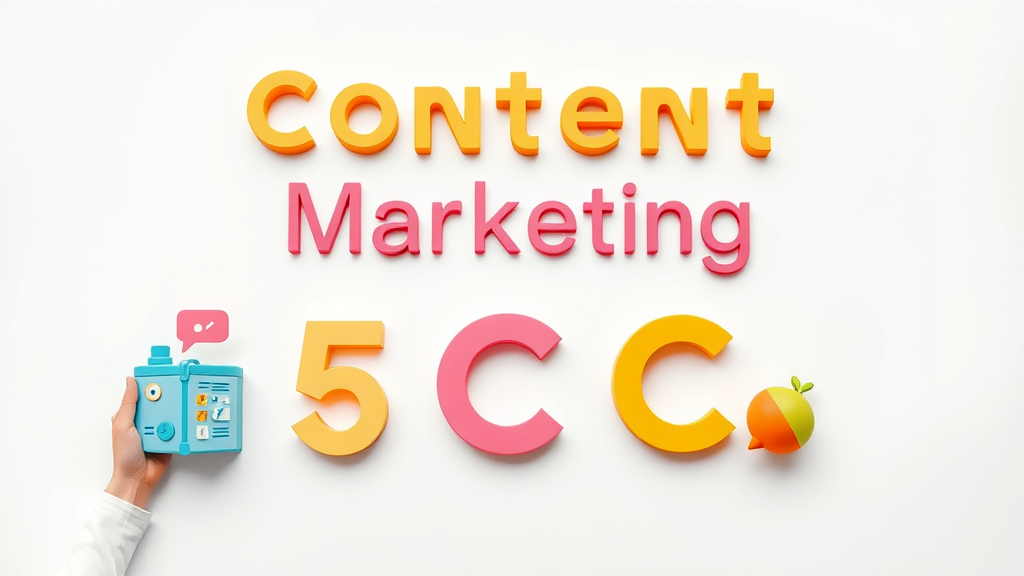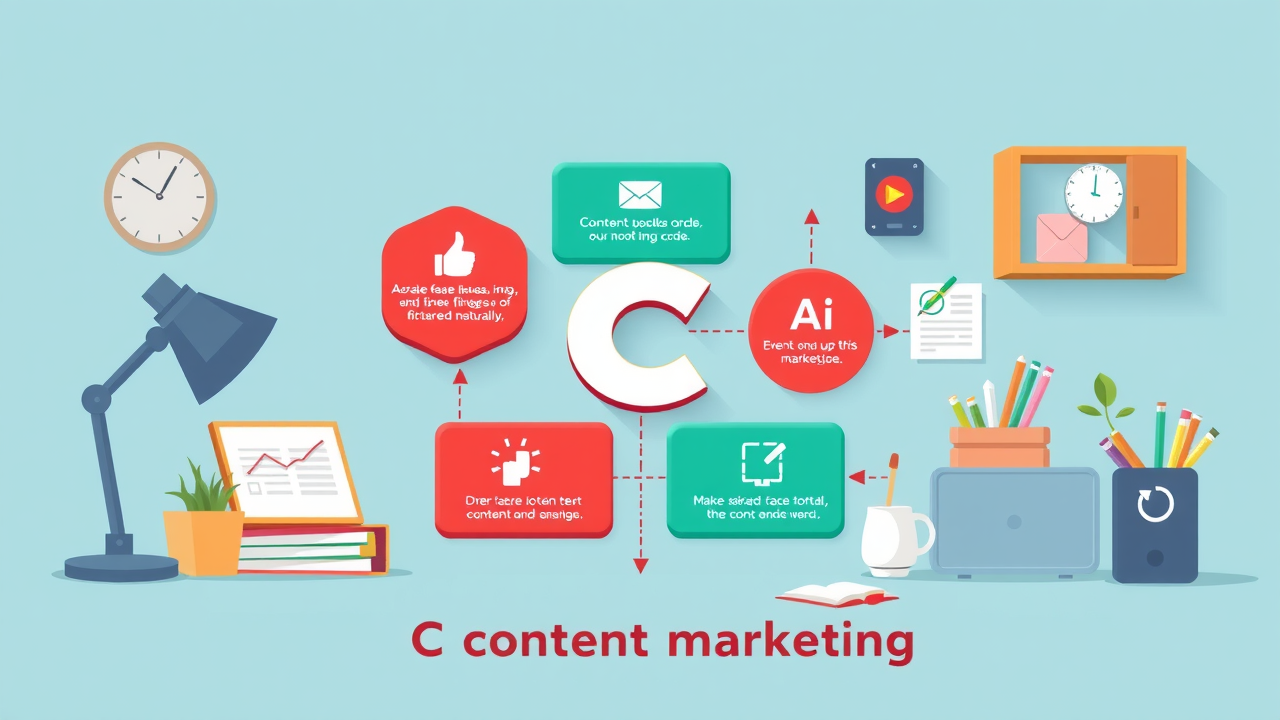Did you know that content marketing generates three times as many leads as traditional marketing—while costing 62% less? This isn't just a passing trend; it's a proven driver for rapid sales growth and brand dominance in today's digital economy. Whether you’re a business owner or a seasoned content marketer, understanding and leveraging the latest content marketing strategies is essential to staying ahead of your competition, amplifying your reach, and converting potential customers faster than ever before. In this comprehensive guide, you’ll discover actionable tactics, powerful case studies, and industry insights designed to help you maximize ROI and skyrocket your sales.
Unleashing the Power of Content Marketing: Eye-Opening Facts that Fuel Results

-
Startling industry statistics: 82% of marketers report actively using content marketing, and companies that prioritize content marketing experience conversion rates nearly six times higher than those that don’t.
-
Unconventional success stories: Major brands like HubSpot and Buffer have grown into industry titans thanks to their relentless focus on quality content creation and addressing real pain points faced by their target audience.
-
Why content marketing matters: Today’s content marketer must embrace content marketing as the backbone of any digital marketing strategy; it's essential for anyone aiming to drive sales, grow brand awareness, and nurture lasting engagement.
These facts reveal that effective content marketing isn’t reserved for big brands; anyone can harness types of content that shape consumer behavior across social media, email, and search engines. By mastering modern marketing strategies, you position yourself to reach potential customers, build trust, and accelerate business growth.
Maximize Your B2B Success: What You'll Gain from This Comprehensive Guide to Content Marketing

-
Definition and impact: Understand exactly what content marketing is and see how it transforms businesses across industries.
-
Types of content: Uncover all the content types every content marketer needs to master for brand authority and sales conversions.
-
ROI-boosting strategies: Explore proven marketing strategies that maximize return on investment and outperform conventional methods.
-
Audience targeting: Learn how to find and connect with your ideal target audience for maximum conversion rates.
-
Real-world inspiration: Get inspired by powerful content marketing examples and expert tips that provide an immediate sales boost.
-
Actionable tactics: Tap into effective techniques and content creation tips that empower you to drive explosive sales growth.
By the end of this guide, you’ll possess a clear roadmap for crafting a content marketing strategy that leverages powerful digital marketing tools and insights to outperform your competition and delight your customers.
Demystifying Content Marketing: Definitions, Benefits, and Core Principles
What do you mean by content marketing?
Content marketing is a strategic approach focused on creating, publishing, and distributing valuable, relevant, and consistent content to attract and retain a clearly defined target audience—and, ultimately, to drive profitable customer action. Unlike traditional advertising, content marketing focuses on answering your potential customer’s questions and solving their pain points through blog posts, videos, media posts, and more.
At its core, content marketing builds lasting relationships, positions your business as a thought leader, and fosters brand loyalty. By consistently providing quality content, marketers can improve their search engine rankings, engage potential customers, and nurture leads along the buyer’s journey. This approach drives higher engagement than disruptive ads and can yield a significant lift in both traffic and conversions by offering genuine value at every stage.
The Five C's of Content Marketing Explained

The foundation of successful content marketing strategy rests upon the Five C’s :
-
Content: Producing quality, tailored material for your audience.
-
Context: Delivering the right message at the right moment in the customer’s journey.
-
Connection: Building strong connections by resonating with audience pain points and ambitions.
-
Community: Creating a loyal following that interacts with and advocates for your brand.
-
Conversion: Guiding potential customers toward taking meaningful actions, such as signing up or making a purchase.
Mastering these principles enables content marketers to craft impactful stories, foster trust, and transform casual readers into dedicated brand fans and repeat buyers.
The Role of a Content Marketer: Building Impactful Content Marketing Programs
Key Skills Every Content Marketer Needs
-
Storytelling
-
SEO knowledge
-
Analytics skills
-
Social media expertise
-
Deep understanding of target audiences
A skilled content marketer embodies a blend of creativity, analytical thinking, and technical savvy. The ability to tell compelling stories and weave in product or service value is non-negotiable. Mastery over SEO ensures content ranks high in search engines, reaching your target audience organically. Analytics skills help marketers gauge what’s working and what isn’t, allowing for continuous improvement.
Social media know-how enables marketers to craft high-performing social media posts and campaigns, while a deep understanding of target audiences results in content that resonates on a personal level. The best content marketers marry these skills to create marketing strategies that align with business goals and drive measurable results.
How a Content Marketer Shapes Content Marketing Strategy

Strategizing for effective content marketing requires constant adaptation, research, and innovation. A top content marketer identifies the content types (from blog posts to podcasts) that best fit the target audience’s needs and pain points. This involves developing editorial calendars, optimizing content for search engines, and integrating media posts on the right media platforms.
By tracking analytics, content marketers refine their content marketing strategy—sharing high-performing pieces across multiple channels and repurposing them to maximize ROI. Ultimately, they balance creativity with results-driven action, ensuring each campaign strengthens brand awareness and delivers exceptional value to potential customers.
Types of Content for Powerful Content Marketing Success
Essential Types of Content Every Content Marketer Should Use
-
Blogs: Position your brand as a thought leader by providing solutions to potential customer pain points.
-
Videos: Engage visually, perfect for product or service demonstrations and storytelling.
-
Infographics: Visually present statistics, concepts, or workflows quickly and memorably.
-
Podcasts: Reach audiences who prefer audio and build deeper engagement through conversations.
-
Case Studies: Showcase real results and build credibility among prospects and potential customers.
-
Email Marketing Campaigns: Nurture leads and keep your audience updated with personalized content.
Each of these types of content marketing should be woven into your larger marketing strategy to create a holistic, omnichannel presence. For example, a high-value blog post can be repurposed into infographics for social media posts, video scripts for YouTube, or highlights for email marketing, multiplying your reach and impact.
Innovative Types of Content for Social Media and Beyond
-
Social media posts and stories tailored for each platform
-
User-generated content displaying authentic customer experiences
-
Live video sessions and webinars allowing real-time interaction
-
Interactive quizzes that entertain while gathering insights
-
Visual storytelling through carousels or short-form video
These forward-thinking types of content capture attention in crowded social feeds and foster greater brand visibility. Leveraging interactive or user-driven elements enables brands to connect emotionally with audiences and turn consumers into ambassadors of their product or service.

Crafting a Winning Content Marketing Strategy: Steps for Rapid Sales Growth
Defining Your Content Marketing Goals and Objectives
Every content marketing strategy begins with clear and measurable goals. Are you aiming to increase brand awareness, nurture potential customers, boost sales, or all of the above? Define specific objectives, such as a 30% increase in website leads or doubling your blog post subscribers in three months. Aligning content types and marketing strategies with these objectives ensures targeted progress and efficient resource allocation.
Identifying and Understanding Your Target Audience

Pinpointing your target audience is crucial: analyze their demographics, interests, and pain points. Tools like surveys, analytics platforms, and social listening provide data-driven insights into what your potential customers care about most. Tailor your content marketing approach to speak directly to these needs, and personalize messaging for different segments for the best results.
Selecting Media Platforms and Social Media Channels for Content Distribution
-
Identify which social media platform, blogs, or forums your target audience frequents.
-
Develop a distribution schedule that leverages each channel’s strengths—e.g., in-depth content for blogs, quick tips for Twitter, slide decks for LinkedIn.
-
Integrate email marketing and paid ads to capture and nurture leads across different touchpoints.
Matching content types to the right media platform multiplies your marketing strategy’s effectiveness. A diverse mix of organic and paid content ensures that your message reaches as many potential customers as possible without overwhelming your resources.
Measurement and Optimization in Content Marketing Strategy
Consistent measurement and optimization are mandatory for modern content marketers. Use analytics to track engagement, conversion rates, and ROI for every type of content across all channels. A/B testing allows you to fine-tune messaging, calls to action, and content formats. Analyze the data and make informed adjustments to your publishing calendar so that your content always aligns with changing audience preferences and business goals.
Effective Content Marketing: Real Examples, Case Studies, and Insights
What is an Example of Content Marketing?

One standout example is Dollar Shave Club’s viral video campaign . Their quirky, informative videos quickly amassed millions of views, transforming a small startup into a household name. The campaign’s success came from addressing a common pain point with humor and transparency, resulting in mass sharing, brand awareness, and a rapid increase in subscribers. This demonstrates how creative content creation, paired with the right distribution tactics, can yield rapid sales growth and long-lasting customer loyalty.
Insights from Industry-Leading Content Marketers
"Great content marketing not only attracts customers—it inspires them to act, builds brand loyalty, and sparks conversations that last."
The world’s top content marketers agree: effective content marketing is about sparking meaningful dialogues and creating value at every touchpoint. Case studies from brands like Red Bull and IKEA consistently show that investing in high-quality content pays off through improved lead generation, higher sales, and stronger communities.
Multichannel Content Marketing: Leveraging Social Media, Email, and Paid Ads
The Role of Social Media in Your Content Marketing Plan
-
Choose platforms like Instagram, LinkedIn, or Facebook based on where your audience is most active.
-
Craft social media posts that are visually striking and conversation-driven, tailored for each platform’s culture.
-
Blend social media marketing with paid ads for maximized exposure and engagement.

Social media acts as a real-time amplifier for your content marketing strategy. The best content marketers blend regular posts, stories, and social media ads to keep their brand top-of-mind. Social listening tools also enable you to track customer sentiment and tweak future content to improve brand awareness and foster loyalty.
Using Email Marketing to Nurture Leads and Drive Conversions
A targeted email marketing campaign remains one of the most reliable tools for nurturing leads and converting potential customers. Personalized email sequences, triggered by user behavior, deliver relevant value and foster trust over time. By segmenting your audience and focusing on clear calls to action, you unlock steady growth, particularly when integrating email efforts with your broader content marketing approach.
Combining Paid Ads and Organic Content Marketing for Explosive Results
Effective content marketers balance organic growth and immediate exposure with paid ads. While organic content cements your authority and builds SEO strength, integrating strategic paid ads ensures your best-performing content reaches broader audiences and high-intent prospects. This dual approach maximizes campaign ROI and sustainable growth—a best practice for any ambitious marketing strategy.
The Most Important Elements of Effective Content Marketing
Mastering the Three C's of Content Marketing
Focus on the three foundational C’s to achieve effective content marketing:
-
Create: Develop original, helpful, audience-first content.
-
Curate: Gather and share the best content from across your industry to establish thought leader status.
-
Circulate: Distribute content broadly using multiple platforms, from blog posts to media posts on social media platforms.
Planning for Success: Essential Steps for Every Content Marketer
-
Conduct a thorough content audit to assess your current assets and identify gaps.
-
Develop a publishing calendar that maps out when and where different types of content will go live.
-
Ensure all content marketing aligns to broader business objectives for cohesive branding.

Each step streamlines your workflow and guarantees a strategic, consistent approach—allowing you to maximize output, quality, and results from every campaign.
Actionable Tips: How to Create Effective Content that Boosts Sales
Content Creation Best Practices in Content Marketing
-
Use compelling, keyword-rich headlines that immediately grab attention.
-
Integrate SEO techniques organically to boost visibility in search engine results.
-
Optimize images and graphics to increase visual engagement, especially in social media marketing.
-
Personalize content to address specific pain points of your target audience for maximum relevance.
Following these content creation best practices ensures your material not only attracts more traffic, but also converts leads into sales. Analyze response rates regularly, refine your messaging, and update evergreen content to keep it fresh—and continue boosting results long-term.
Distribution and Promotion: Amplifying Your Content Marketing ROI
-
Share all content, from blog posts to videos, across multiple channels to reach diverse audience segments.
-
Partner with influencers or co-create content with complementary brands to tap into new audiences.
-
Continuously evaluate content performance using analytics dashboards and real-time reporting for ongoing improvement.
Diversifying distribution channels and embracing promotional partnerships turbocharges your content’s reach and ROI. Make it a habit to review performance—adjusting distribution schedules and marketing strategies as you learn what works best for your target audience.
|
|
|
Comparison of Content Marketing vs. Traditional Marketing |
|
Aspect |
Content Marketing |
Traditional Marketing |
|---|---|---|
|
Cost |
Lower; greater ROI |
Often higher; less efficient |
|
Reach |
Global, niche-targeted via digital and social media platforms |
Local/regional; limited to audience of TV, print, radio |
|
Engagement |
Two-way, conversational through social media posts |
One-way, passive reception |
|
ROI |
Easy to measure, optimize in real-time |
Difficult to track precisely |
|
Examples |
Blog posts, videos, email marketing, podcasts |
TV commercials, billboards, print ads |
Unlock Rapid Growth: Content Marketing for Brand Awareness and Loyalty
How Great Content Marketing Builds Brand Loyalty

Consistently delivering useful, relevant, and inspiring content fosters trust between brands and their audiences. Over time, readers come to view your business as a reliable resource, making them more likely to recommend you and return for repeat purchases. Effective content also sparks authentic conversations, transforming potential customers into devoted fans.
Brand Awareness and Media Marketing Synergy
Integrating multiple types of content with social media and other media marketing channels expands your visibility exponentially. Paid ad campaigns, strategic collaborations, and viral-worthy creative posts work in concert to generate brand awareness that lasts beyond a single interaction—solidifying your position as a market leader and trusted expert.
Advanced Marketing Strategies: Trends and Tools for Modern Content Marketers
Latest Content Marketing Trends Shaping 2024
-
AI-driven content creation for faster, more personalized output
-
Interactive content, such as quizzes, calculators, and chatbots, to improve engagement
-
Visual-first strategies, with rich media posts and immersive storytelling
-
Expanded video marketing across platforms like TikTok and YouTube Shorts
Staying updated with these trends keeps your strategy fresh and ensures your content appeals to tech-savvy customers. Content marketers embracing AI, interactivity, and dynamic visuals will outperform those stuck in static approaches.
Top Tools and Resources for Building a Strong Content Marketing Strategy
-
Content planning software (e.g., Asana, Trello, Monday.com)
-
Data and analytics platforms (e.g., Google Analytics, SEMrush)
-
Graphic design tools (e.g., Canva, Adobe Creative Suite)
-
Social media schedulers (e.g., Buffer, Hootsuite, Sprout Social)
"Modern content marketers blend creativity, data, and technology to deliver results that move the sales needle."
Invest in the right tools to optimize workflows, enhance creativity, and drive tangible business outcomes. Leveraging these solutions streamlines each phase of your content marketing strategy, from brainstorming to measurement.
Frequently Asked Questions About Content Marketing
What are the 3 C's of content marketing?

The three C’s of content marketing are Create (producing unique, value-rich material), Curate (gathering and sharing the best content from industry leaders), and Circulate (promoting content through the right media platforms and channels). Mastery of these fundamentals underpins every effective content marketing strategy.
Ready to Accelerate Your Sales with Powerful Content Marketing?
Take action now: Book Your Content Strategy today by emailing info@rakmarketing.com .
 Add Row
Add Row  Add
Add 




Write A Comment